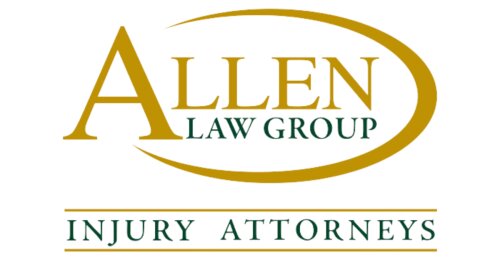Best Property Damage Lawyers in Chicago
Share your needs with us, get contacted by law firms.
Free. Takes 2 min.
List of the best lawyers in Chicago, United States
United States Property Damage Legal Questions answered by Lawyers
Browse our 1 legal question about Property Damage in United States and read the lawyer answers, or ask your own questions for free.
- MOVING COMPANY DAMAGED RENTAL HOME, FURNITURE AND NEW HOME
- MOVING COMPANY DAMAGED WALLS AND FURNITURE IN TWO HOUSES, THEY DIDNT USED PACKING BLANKETS OR MOVING EQUIPMENT, I FILED A DAMAGE CLAIM MID MOVE, AND RELIEVED THE WORKERS EARLY FROM SCHEDULED TIME TOOK PICS AND SUBMITTED TO THE MOVING COMPANY, NOW THE MOVING COMPANY IS INSINUATING WE CAUSED THE DAMAGE,... Read more →
-
Lawyer answer by T & A Legal
Hello, sorry about the damage to your walls and furniture. The moving company may be liable for a breach of contract or negligence. However, their liability will be determined largely by the contract between you and the moving company.Please note...
Read full answer
About Property Damage Law in Chicago, United States:
Property damage refers to any harm caused to someone's personal or real property. In Chicago, United States, property damage claims are governed by specific laws that dictate how damages can be pursued and compensated.
Why You May Need a Lawyer:
Situations where you may require legal help in property damage cases include disputes with insurance companies, determining liability for damages, negotiating settlements, and navigating complex legal procedures.
Local Laws Overview:
In Chicago, United States, property damage laws are governed by both state and city laws. It is important to be familiar with statutes of limitations, comparative negligence laws, and the legal process for filing a property damage claim in Chicago.
Frequently Asked Questions:
1. How long do I have to file a property damage claim in Chicago?
In Chicago, the statute of limitations for property damage claims is typically two years from the date of the damage.
2. Will my insurance cover property damage?
It depends on your insurance policy. You may need to review your coverage to determine if your policy includes property damage protection.
3. How is liability determined in property damage cases?
Liability for property damage is usually determined based on negligence. The party who acted negligently and caused the damage may be held liable for compensation.
4. Can I sue for emotional distress caused by property damage?
In some cases, you may be able to seek compensation for emotional distress resulting from property damage. It is best to consult with a lawyer to assess your options.
5. What evidence is needed to support a property damage claim?
Evidence such as photos of the damage, repair estimates, documentation of the incident, and witness statements can help support your property damage claim.
6. How is property damage compensation calculated?
Property damage compensation is typically calculated based on the cost of repairs, replacement value of the damaged property, and any additional losses incurred as a result of the damage.
7. Can I negotiate a settlement for property damage without going to court?
Yes, you can negotiate a settlement with the responsible party or their insurance company without going to court. It is advisable to seek legal counsel to ensure a fair settlement.
8. What should I do if my property is damaged in a natural disaster?
If your property is damaged in a natural disaster, you should document the damage, contact your insurance company, and consider seeking legal advice to understand your rights and options for compensation.
9. Can a landlord be held liable for property damage caused by a tenant?
Landlords may be held liable for property damage caused by a tenant if they have been negligent in maintaining the property or if they were aware of the tenant's actions that led to the damage.
10. How can a lawyer help me with my property damage claim?
A lawyer can help you assess the strength of your claim, negotiate with insurance companies or responsible parties, and represent you in court if necessary to ensure you receive fair compensation for your property damage.
Additional Resources:
For more information on property damage laws in Chicago, United States, you can contact the Illinois Attorney General's office or the Chicago Bar Association for legal assistance and resources.
Next Steps:
If you need legal assistance with a property damage claim in Chicago, United States, it is advisable to consult with a qualified property damage lawyer who can assess your case, provide guidance on your legal options, and help you pursue the compensation you deserve.
Lawzana helps you find the best lawyers and law firms in Chicago through a curated and pre-screened list of qualified legal professionals. Our platform offers rankings and detailed profiles of attorneys and law firms, allowing you to compare based on practice areas, including Property Damage, experience, and client feedback.
Each profile includes a description of the firm's areas of practice, client reviews, team members and partners, year of establishment, spoken languages, office locations, contact information, social media presence, and any published articles or resources. Most firms on our platform speak English and are experienced in both local and international legal matters.
Get a quote from top-rated law firms in Chicago, United States — quickly, securely, and without unnecessary hassle.
Disclaimer:
The information provided on this page is for general informational purposes only and does not constitute legal advice. While we strive to ensure the accuracy and relevance of the content, legal information may change over time, and interpretations of the law can vary. You should always consult with a qualified legal professional for advice specific to your situation.
We disclaim all liability for actions taken or not taken based on the content of this page. If you believe any information is incorrect or outdated, please contact us, and we will review and update it where appropriate.










